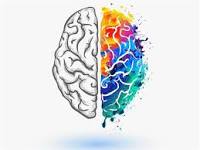--Original published at Psychology 105
As rates of divorce have risen in the US, so has the amount of research on the effects of divorce on families and children. When it first became a hot issue in the 1970s, it seemed that the consensus was that it was detrimental for children to experience a divorce. Some more modern research echoes this conclusion. An article published on focusonthefamily.org claims that divorce inevitably causes children to suffer. It says that children who experience divorce have a greater risk of suffering financially and academically, as well as an increased risk of being incarcerated or engaging in alcohol or drug use. Additionally, the article states divorce causes psychological distress that can affect a child for decades after it occurs. Each of these claims is specifically cited by different studies and journals, which leads me to believe it is a credible article overall. Another article, published by Divorce Source, Inc., explicitly claims that divorce is a traumatizing experience for children. Unlike the first article, which seemed more concerned with overall risks associated with divorce, this source focuses more on explaining how divorce can disrupt order in a child’s life and cause them to question their own security and stability. It claims that there are certain “uncontrollable bad effects” that families experience such as financial instability and issues associated with relocating and adjusting to a new environment. It also details some potential difficulties like losing friends and family, difficulties with holidays and birthdays, and dealing with a new step-family.
Alternative research shows divorce often does have negative effects on children; however, these effects are often short term. An article on children-and-divorce.com states several negative outcomes of divorce that have been widely observed through research including sadness, anger, insecurity, and behavioral problems. It concludes, however, over time children learn to cope with the situation and overcome these effects as they mature. Overall, it says research shows that good parenting is more important than being raised in a traditional family structure. This source, as well as the second one that I included, are both websites that provide information to individuals who are considering or going through a divorce. I believe that they both seem relatively unbiased and they cite specific claims with other research or sources which is why I chose to include them as credible sources. The last article I will include also claims that over time children are able to adjust to divorce. The article, from scientificamerican.com says that only a small number of children experience issues after divorce and into adulthood. It cites a study that found the short-term effects of divorce, including anger, anxiety, and shock, diminish after only two years. It also references other research which concluded that most children who experience divorce become well-adjusted adults. The supporting research came from scholarly studies and the article itself was written by two professors of psychology, which is why I chose it as a credible source.
Overall, I personally believe that children can come out of a divorce without serious consequences. Divorce can lead to instability; however, I think after the initial shock children can learn to adjust to their new lives. My second source said, “the most important factor in a divorce is how a parent handles a divorce.” I think this is very important to consider, and why it is difficult to predict what the exact outcomes of a divorce on a child will be. My third source also mentioned an interesting point which was that there may be a causal relationship between how socially acceptable divorce is and how dramatic the outcomes of divorce are for children. It seemed like in the 1970s, when divorce was nearly considered taboo, the outcomes of divorce were far more dramatic. Today, however, the outcomes seem much less negative, and this may be because divorce is viewed much less negatively overall.
Sources
Arkowitz, Hal. “Is Divorce Bad for Children?” Scientific American, 1 Mar. 2013, http://www.scientificamerican.com/article/is-divorce-bad-for-children/.
“How Could Divorce Affect My Kids?” Focus on the Family, 1 Jan. 2006, http://www.focusonthefamily.com/marriage/divorce-and-infidelity/should-i-get-a-divorce/how-could-divorce-affect-my-kids.
“Outcomes of Divorce on Children.” Children and Divorce: Information, Tips and Real Life Stories for Divorced Parents., http://www.children-and-divorce.com/outcomes-of-divorce-on-children.html.
 cover emotion and human morality. I’m not really interested in learning about conditioning methods, obedience, or the unit on sleeping. These topics were covered fairly heavily in the other course I took, so that’s really the only reason I’m not super interested in learning about them again. I don’t really have any specific questions about psychology that I’d like to answer, but I would like to know the different ways that psychology and human health are related to each other by the end of this course so I can know where to take my studies next in this field.
cover emotion and human morality. I’m not really interested in learning about conditioning methods, obedience, or the unit on sleeping. These topics were covered fairly heavily in the other course I took, so that’s really the only reason I’m not super interested in learning about them again. I don’t really have any specific questions about psychology that I’d like to answer, but I would like to know the different ways that psychology and human health are related to each other by the end of this course so I can know where to take my studies next in this field.